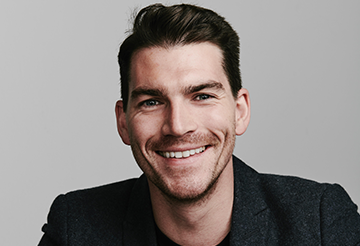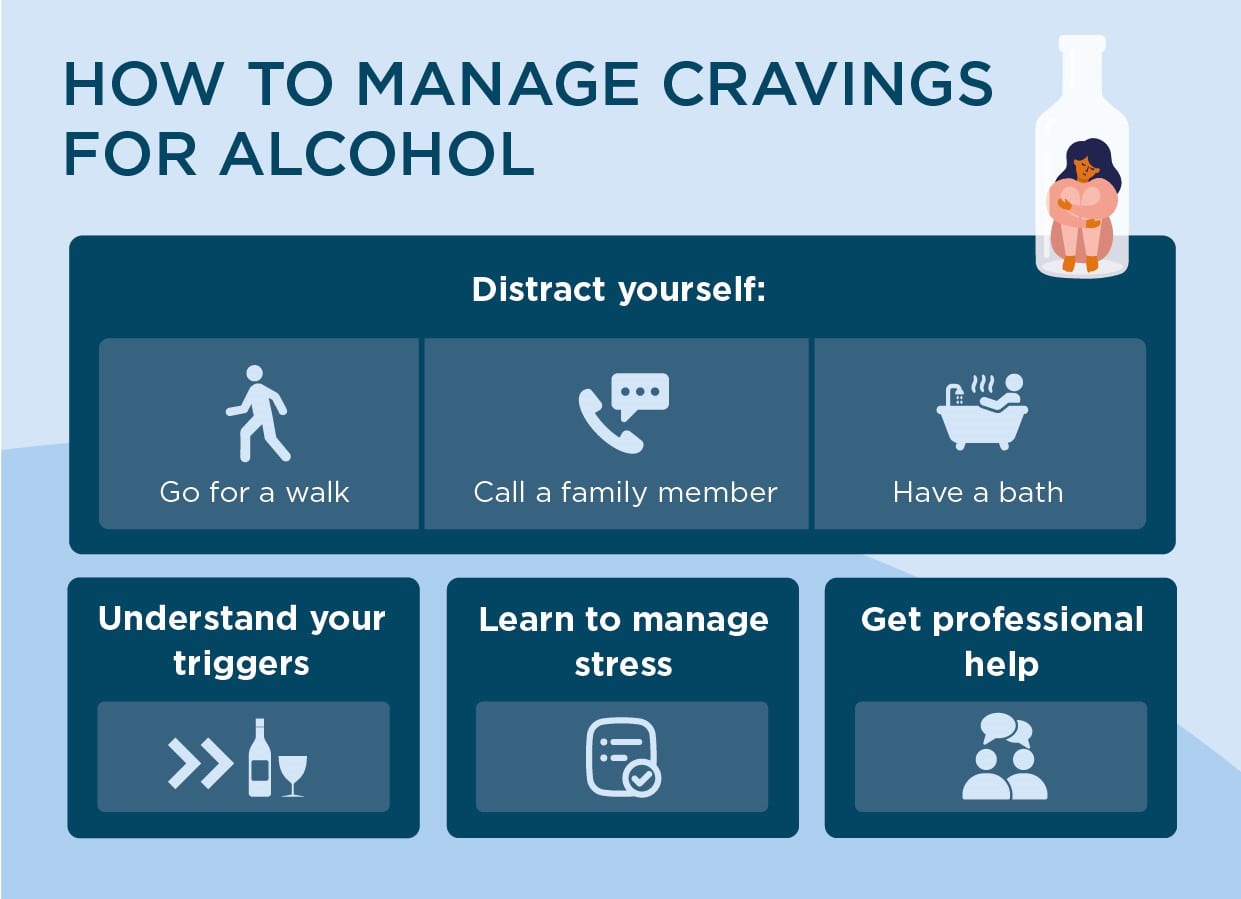Alcohol cravings: what they are and how to beat them
Alcohol cravings can feel overwhelming, driven by withdrawal, habits or emotional facts.
Alcohol cravings can feel overwhelming, driven by withdrawal, habits or emotional facts.



Cutting back or quitting drinking can lead to alcohol cravings. These can feel quite powerful and can make it difficult to resist the urge to drink. However, with the right coping mechanisms in place, you can overcome cravings and continue along your path to wellbeing.
Managing alcohol cravings becomes more achievable when you understand your triggers and have some effective coping strategies ready to use.
In this video, Consultant Psychiatrist David McLaughlan, describes the temporary nature of cravings, rising and falling like a wave. Learning how to “surf the urge” involves accepting the craving is there and actively distracting yourself.
When alcohol cravings arise, remember that they’re temporary and will go away on their own. Acknowledge and accept the craving, and try some of these strategies to distract yourself in the moment:
Exercise - Exercise can release ‘feel-good’ chemical dopamine, lowers stress levels and boosts endorphins, which can improve mood and reduce the urge to turn to alcohol for relief.
Mindfulness-based techniques - practising deep breathing, meditation, body scanning or yoga can reduce stress and help you to be more aware of your cravings without acting on them. These techniques encourage calmness and self-awareness, making it easier to resist urges.
Cognitive distractions - actively engaging your mind in activities like puzzles, games, reading or playing a musical instrument can distract you from the craving and keep you engaged in something positive.
Journaling - writing down your feelings, thoughts or experiences can help you process emotions, release tension and identify triggers for your cravings. Journaling can also be used to reaffirm your reasons for cutting back or quitting alcohol and stay on track with your progress.
Long-term strategies for managing alcohol cravings include addressing the underlying causes for your alcohol cravings, understanding your triggers and creating sustainable habits.
Understanding triggers - recognising and avoiding triggers, especially in early recovery, can reduce the risk of giving in to drinking. Make a note of what comes up before or when you’re experiencing a craving as this will help you to understand your triggers. Once you’re more aware of your triggers, it’s easier to anticipate and manage them.
Learning to manage stress and difficult emotions - alcohol is often used to cope with stress or difficult emotions, so it’s important to learn alternative coping strategies. That includes building a healthy routine, changing your habits and planning ahead.
Building a healthy routine - a healthy routine provides structure, reduces triggers and builds new habits. It enables you to replace alcohol-related habits (such as drinking after work) with healthier alternatives, such as going to the gym. Regular sleep, a healthy diet, and self-care routines can improve your physical and mental health and make it easier to manage cravings.
Creating a personalised recovery toolkit - building a personalised recovery toolkit you can draw on when you’re experiencing cravings can support your long-term sobriety. You could:
If you’re finding it hard to manage cravings on your own, it’s important that you reach out for professional support. With guidance, therapy, medication, and other interventions, recovery becomes easier, safer and more effective.
Your GP is a good first step to take for initial support and advice. You can also find other support options near you in directories like the Hub of Hope.

Craving alcohol means you have a strong urge to drink. You may find it hard to concentrate on anything else, which can make it even more challenging to resist having a drink.
Cravings are common in the early stages of recovery, when you haven’t had a drink for a certain length of time, and you may experience them on and off for a number of years. Usually, a craving lasts between 5 to 15 minutes.
Emotionally, they can manifest as:
Physically, cravings can cause:
Triggers are internal or external cues that can set off cravings or the urge to drink. They can be thoughts, feelings, situations or even places that remind you of drinking, or make you want to use alcohol to feel better or cope.
Internal triggers can include:
External triggers can include:
Alcohol cravings may indicate a deeper problem that needs professional attention if they occur frequently and become difficult to control. You may need further support if you experience them regularly or find they are disrupting your work and social life.
Families and friends play an important role in supporting a loved one dealing with alcohol cravings.
Look out for emotional, behavioural and physical signs of alcohol cravings:
These are several dos and don’ts when you’re dealing with a loved one with alcohol cravings.
What to do:
What to avoid:
It’s helpful to educate yourself on alcohol cravings and addiction. When you understand what your loved one is going through, it’s easier to support them.
Organisations such as Al-Anon provide a safe space for families to share their experiences, learn coping strategies and receive emotional support. Read up as much as you can on the subject, and speak to the person themselves . By understanding addiction, you can offer the best support you can.
Cravings can be a normal response to reducing alcohol use. However, if your cravings are frequent, intense or uncontrollable, they might indicate alcohol addiction.
Cravings tend to reduce over time, especially if you’ve developed healthy new habits, routines and coping strategies. But they may not disappear entirely, and you may still experience triggers and cravings in certain situations.
Alcohol cravings can be a sign of withdrawal, especially if you have an alcohol dependency. They tend to occur alongside other withdrawal symptoms such as anxiety, irritability and physical discomfort.
You can identify your triggers by tracking when and where cravings happen. Make a note of the emotions that come up and the people, places or situations that evoke them.
You could keep a journal to record this information, any patterns you notice, what emotional states lead up to cravings, and what coping strategies are most helpful for you.
If your cravings are frequent, intense or hard to control, you should seek professional help. You’ll receive guidance, strategies and a treatment plan to help you manage cravings effectively.
